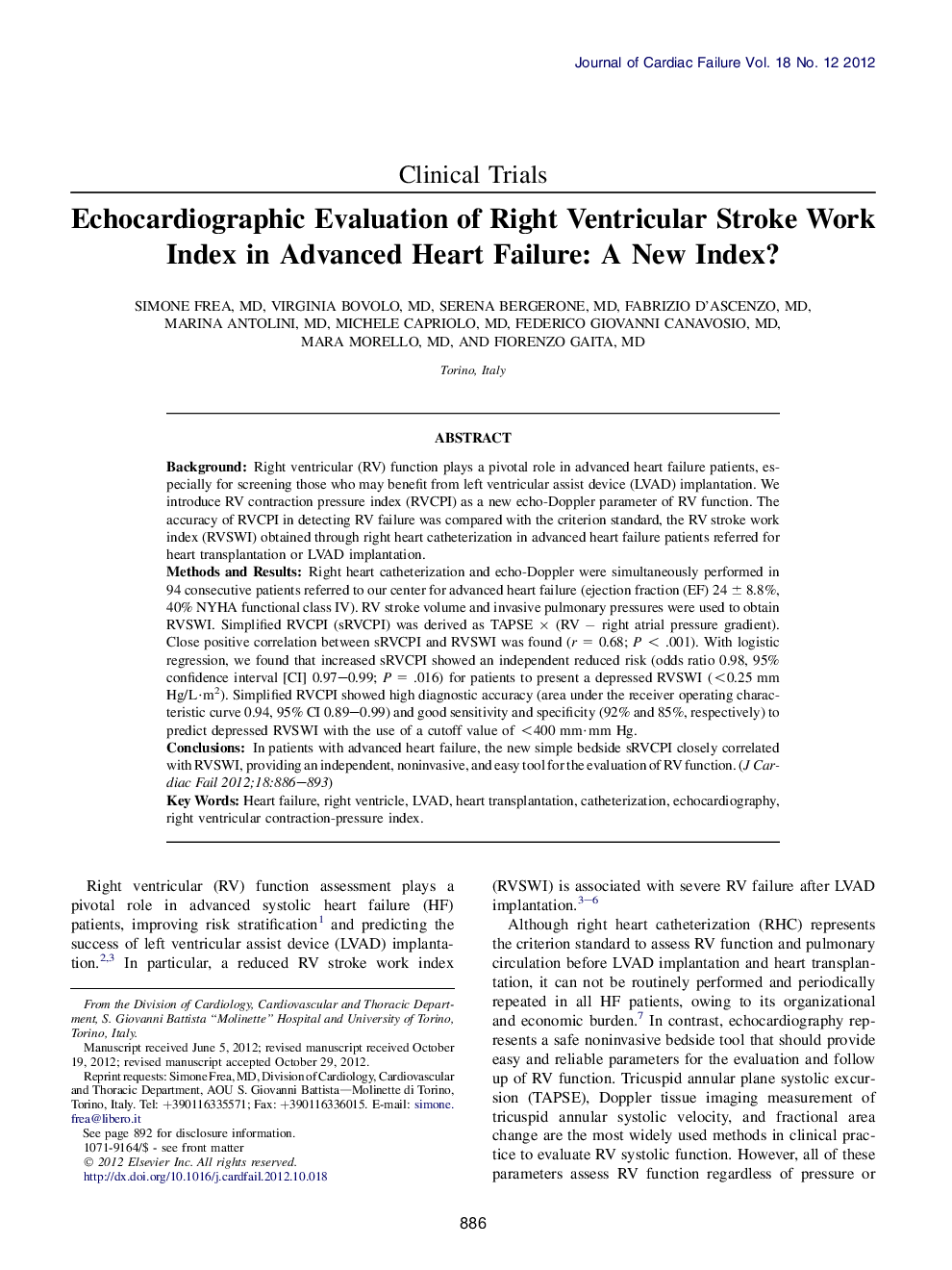| Article ID | Journal | Published Year | Pages | File Type |
|---|---|---|---|---|
| 2960479 | Journal of Cardiac Failure | 2012 | 8 Pages |
BackgroundRight ventricular (RV) function plays a pivotal role in advanced heart failure patients, especially for screening those who may benefit from left ventricular assist device (LVAD) implantation. We introduce RV contraction pressure index (RVCPI) as a new echo-Doppler parameter of RV function. The accuracy of RVCPI in detecting RV failure was compared with the criterion standard, the RV stroke work index (RVSWI) obtained through right heart catheterization in advanced heart failure patients referred for heart transplantation or LVAD implantation.Methods and ResultsRight heart catheterization and echo-Doppler were simultaneously performed in 94 consecutive patients referred to our center for advanced heart failure (ejection fraction (EF) 24 ± 8.8%, 40% NYHA functional class IV). RV stroke volume and invasive pulmonary pressures were used to obtain RVSWI. Simplified RVCPI (sRVCPI) was derived as TAPSE × (RV − right atrial pressure gradient). Close positive correlation between sRVCPI and RVSWI was found (r = 0.68; P < .001). With logistic regression, we found that increased sRVCPI showed an independent reduced risk (odds ratio 0.98, 95% confidence interval [CI] 0.97–0.99; P = .016) for patients to present a depressed RVSWI (<0.25 mm Hg/L·m2). Simplified RVCPI showed high diagnostic accuracy (area under the receiver operating characteristic curve 0.94, 95% CI 0.89–0.99) and good sensitivity and specificity (92% and 85%, respectively) to predict depressed RVSWI with the use of a cutoff value of <400 mm·mm Hg.ConclusionsIn patients with advanced heart failure, the new simple bedside sRVCPI closely correlated with RVSWI, providing an independent, noninvasive, and easy tool for the evaluation of RV function.
